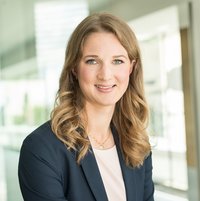Compliance & Internal Investigations03.11.2021 Newsletter
FISG: effects on supervisory boards and the composition of the audit committee
In July of this year, the German Act on the Strengthening of Financial Market Integrity (Gesetz zur Stärkung der Finanzmarktintegrität), or “FISG” for short, came into force. With this, the legislator wishes to strengthen confidence in the German financial market again, especially after the so-called Wirecard scandal.
To this end, the FISG envisages a large number of measures, including the legal obligation of listed stock corporations to establish an internal control system (ICS) and risk management system (RMS), the strengthening of the independence and tightening of the liability of annual accounts’ auditors, and the extension of the powers of the German Federal Financial Supervisory Authority (Bundesanstalt für Finanzdienstleistungsaufsicht – BaFin).
This article focuses on the new provisions that have been included to create strong internal supervisory bodies.
Public interest entities
The new requirements regarding the expertise of supervisory board members and the composition of audit committees relate exclusively to "public interest entities" (Sec. 316a German Commercial Code (Handelsgesetzbuch - HGB), new version). This includes corporations whose securities are admitted to trading on the regulated market, as well as insurance companies and CRR credit institutions.
New requirements for the composition of supervisory boards
The first innovation provided for in the FISG concerns the composition of the supervisory board of public interest entities. The new Sec. 100 (5) German Stock Corporation Act (Aktiengesellschaft - AktG) requires that, in future, "at least one member of the supervisory board has expertise in the field of accounting and at least one other member of the supervisory board has expertise in the field of annual accounts’ auditing". In contrast to the old version, it is now a requirement that expertise in both areas must be represented cumulatively on the supervisory board. In addition, it is imperative that this expertise is spread over two members of the supervisory board. It is not sufficient if just one member of the supervisory board has a command of both areas of expertise.
As regards the required level of expertise, the person in question does not necessarily have to belong to a tax advisory or auditing profession. Sufficient expertise can also be assumed in case of "financial directors, expert employees from the fields of accounting and controlling, analysts as well as long-standing members of audit committees or works councils who have acquired this ability in the course of their work through further training" (Bundestag printed paper 16/10067, p. 102).
Transitional arrangements for existing supervisory board members
Although this law came into force on 1 July 2021, there is a transitional rule: accordingly, Sec. 100 (5) AktG (new version) does not have to be applied as long as all members of the supervisory board were appointed before 1 July 2021. The explanatory memorandum to the Act (Bundestag printed paper 19/26966) states in this respect that its implementation will be mandatory upon the next regular change of supervisory board member. If a member of the supervisory board resigns before the end of his term of office (e.g. due to reaching an age limit) and, as a result, an already appointed substitute member becomes a member of the supervisory board, this does not trigger any obligation to apply the new requirements.
Tasks of the audit committee
The audit committee is formed by the supervisory board. Its scope of duties is determined by Sec. 107 (3) sentence 2 AktG. Accordingly, the audit committee’s task is to monitor the accounting process, the effectiveness of the internal control system, the risk management system and the internal audit system. It also monitors the audit of the annual accounts. Here, Sec. 107 (3) sentence 2 AktG (new version) extends the scope of the audit committee's duties from the monitoring of the selection and independence of the auditor to additionally include the "quality of the audit of the annual accounts".
Audit committee now mandatory
Public interest entities are now required to form an audit committee (Sec. 107 (4) sentence 1 AktG). Until now, the supervisory board has been free to form committees and delegate tasks to them. The audit committee is to be composed in accordance with the regulations for supervisory boards pursuant to Sec. 100 (5) AktG (new version) (see above). If the supervisory board has only three members, then by law it is also the audit committee. These regulations also went into effect on 1 July 2021. The transitional rules set out above also apply to the composition of the audit committee.
Extended powers for members of audit committees
The rights of the members of the audit committee to information have now been extended: they are now able to obtain information directly from the managers of those central departments of the company that are responsible for the tasks of the audit committee (Sec. 107 (4) sentence 4 AktG). This places responsibility on the central units at the first management level below the executive board. The chairman of the committee must communicate any information obtained to all members of the audit committee.
Conclusion
The FISG brings with it several important innovations for the supervisory board and the audit committee. Although the establishment of an audit committee is best practice in most companies and has already been included in Recommendation D.3 of the German Corporate Governance Code (Deutscher Corporate Governance Kodex), companies affected by this should nevertheless give particular attention to the extended competences of the committee and the increased requirements for the composition of both bodies, at the latest at the next change of member of the supervisory board or audit committee.
Anna-Catharina von Girsewald
PartnerRechtsanwältin
Konrad-Adenauer-Ufer 23
50668 Cologne
T +49 221 2091 407
M +49 173 3138 081
